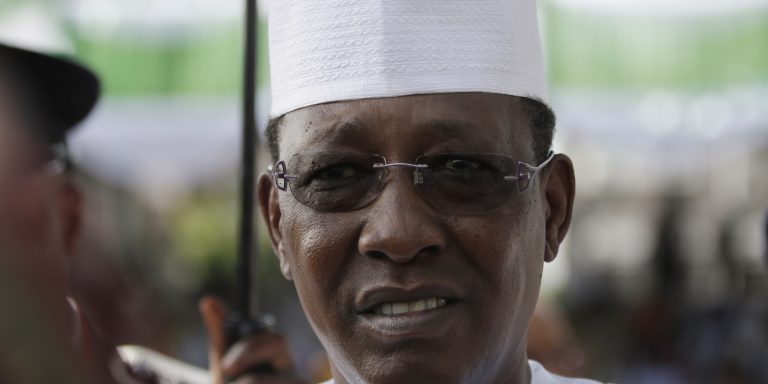INTELBRIEF
April 22, 2021
IntelBrief: Will Death of Chadian President Idriss Deby Derail Counterterrorism Efforts in the Sahel?

Bottom Line Up Front
- Idriss Deby, President of Chad for the last three decades, has died of wounds suffered during clashes with militants.
- With Deby gone, there are growing concerns about spreading instability and threats to the territorial integrity of Chad and regional impacts
- Deby was popular with France and the U.S. for his commitment to fighting Boko Haram and other jihadist groups operating throughout the Sahel.
- A rebel group known as the Front for Change and Concord in Chad (FACT) has been attacking border posts and advancing on the capital.
Idriss Deby, President of Chad for the last three decades, has died of wounds suffered following clashes with rebel fighters who traveled to Chad from their base in neighboring Libya. His death comes just one day after he was reelected to what would have been his sixth consecutive term as president, making him one of the longest serving rulers in Africa. Following his death, President Deby’s son, Mahamat Idriss Deby, assumed power and is slated to govern Chad as part of a new transitional military council set to rule for a year and a half before elections are held. Many have pointed out that this is a violation of Chad’s constitution and some have labeled it a military coup. With the new government likely to be focused on internal stability and securing domestic patronage networks, it could impact the regional counterterrorism efforts against al-Qaeda and Islamic State-linked jihadists.
With Deby gone, there are growing concerns about spreading instability and threats to the territorial integrity of Chad. In a region that includes Libya, Sudan, and the Central African Republic (CAR), Chad was a beacon of relative stability, and these developments will raise concerns about broader regional impacts. Chadian troops were among the most reliable countries for counterterrorism operations of all five Group of Five (G5) for the Sahel (which also includes Burkina Faso, Mali, Mauritania, and Niger). Chadian troops have been at the centerpiece of Western train and equip efforts in the Sahel, serving as the most capable partner nation in the fight against jihadists in Mali, Niger, and Nigeria. If security cooperation activities are interrupted as a result of Deby’s death, terrorist activity could spike in the Lake Chad region. Violent non-state actors throughout the Sahel have already benefited from the influx of weaponry that followed the collapse of Libya, and the criminal opportunities for financing through trafficking in illicit goods, weapons and people. In addition to small arms, including AK-47 assault rifles, more sophisticated weaponry such as rocket propelled grenades (RPGs) and shoulder-fired missiles are trafficked and traded by criminal networks.
Deby was a darling of the West for his commitment to fighting Islamist terrorism in the region. Both France and the United States relied on Deby to counter Boko Haram and other jihadist groups operating in Chad and elsewhere in the Sahel. As in many other cases, Paris and Washington mostly remained silent about Deby’s handling of domestic issues within Chad, even as accusations of human rights abuses and crackdowns of political opponents continued to mount. Domestically, Deby long struggled with internal strife related to ethnic conflict and an uneven distribution of resources, including wealth generated by oil and minerals, among various groups. While his son is expected to continue the fight against terrorists and insurgents, the transition could interrupt ongoing counterterrorism training activities and could hamper operations against jihadists.
As part of Operation Barkhane, France keeps 5,000 troops stationed in N’Djamena. France has long maintained a relationship with Chad, and in 2019, French planes launched airstrikes in support of Deby against the Union of Resistance Forces (UFR), insurgents based in Libya. Deby also held off armed groups’ challenges to the capital in both 2006 and 2008. More recently, a rebel group known as the Front for Change and Concord in Chad (FACT), formed by ex-army officers in 2016, has been mounting attacks on border posts and pushing ahead to advance on the capital. Chad’s military claims to have killed more than 300 insurgents and captured an additional 150 militants. As countries like the United States and France deal with the fallout from the COVID-19 pandemic and shift focus to great power competition and rivalries with near-peer competitors like Russia and China, counterterrorism operations have been deemphasized. This is happening just as jihadist and militant groups in the Sahel are ramping up their activities, taking advantage of the region’s porous borders and weak security forces.